We received the two-book set which contains the Teacher's Guide and the Student Workbook by Elizabeth Kamath.
Here is the list of the books used:
- Sarah, Plain and Tall
- Rickshaw Girl
- Charlie and the Chocolate Factory
- Ramona and Her Father
- The Big Wave
- Charlotte's Web
- The Wheel on the School
- The Tale of Despereaux
- The Random House Book of Poetry for Children
Let's start by taking a closer look at the Student Workbook.
This 340-page softcover, colorful book starts with a Table of Contents, and then moves straight into the grammar & mechanics lessons, reading journal pages, and dictionary pages (which are in the back of the book).
The Table of Contents shows you which weeks you are going to be using each book, plus page numbers where you will find the lessons. As you can see, each book takes a different amount of time to complete, from 1-7 weeks to be more specific.
Right after the Table of Contents, the book moves into the lessons. Explanations or instructions are given on each page. Each day's lesson is only one or two pages long with a handful of varying activities.
The student may have to examine sentences to work on the week's concept, such as capitalization, nouns, adjectives, verbs, or adverbs.
We've had to differentiate between different types of writing.
We've even been learning to diagram sentences.
To keep the grammar lessons connected to the stories, the activities focus on sentences or passages taken directly from the books.
In our lessons for Rickshaw Girl there was an art page, and later on in the year, there will even be some map work. Some weeks there may even be sentence puzzles.
The grammar covered includes: nouns, adjectives, subjects & predicates, verbs, adverbs, plurals, tenses, pronouns, antecedents, punctuation, and so much more.
Additionally, the Student Workbook includes the Reading Journal pages. These are used at the end of each book for the child to write down what the story was about, the message in the story, what the child thought of the book, and a favorite sentence.
Let's move on to the Teacher's Guide to see what else is taught with this curriculum.
In this 345 page, softcover book, the teacher/parent will find detailed instructions for teaching these lessons. After the Table of Contents and the "How to Use This Teacher's Guide" section, we move into the lessons. Each week starts with a "Week at a Glance" page.
This will tell you which chapters are going to be read, plus a list of optional materials, the grammar & mechanics that will be taught that week, and what the composition is going to be focused on.
Each day instructions are given for literature, grammar & mechanics, and composition.
After reading the chapter(s), there are questions to ask.
The guide then explains to the teacher/parent what is being taught in the grammar section of the workbook for the day. Answers are also given.
Then the composition portion is explained. These assignments span a couple of weeks, so the child only has to do a little bit at a time each day.
Each week there are also ideas given for extending the lesson.
Now, do you remember those Reading Journal Pages in the Student Workbook that are worked on after the book is completed? Well, before filling them out, the parent and child discuss the book using the Book Discussion guidelines. You will look at theme, story plot-line, character, setting, external and internal details, conflict, and symbolism.
At the back of the Teacher's Guide you will find a section that demonstrates proper letter and number form, proper positioning for handwriting, and reproducible lined paper in two different sizes.
How did we use Lightning Literature & Composition Grade 3?
I used this curriculum with Amelia. Though she just finished third grade, I figured these lessons would still be beneficial. Some of the information has been review for her, but while we were working on it, I realized she still doesn't have a firm grasp on such things as subject and predicate, and she even struggles to remember to use capital letters at the correct times. So, this curriculum seems to have come at just the right time.
We actually started in the middle of the lessons. We were learning about Japan with our Core Curriculum, so I decided to start with lesson 16, The Big Wave by Pearl S. Buck. We then moved back to the beginning of the curriculum and worked on Sarah, Plain and Tall by Patricia MacLachlan, and Rickshaw Girl by Mitali Perkins.
With The Big Wave the grammar focused on capitalization, which is also taught earlier in the book, but these lessons were a bit more advanced, such as capitalizing abbreviations and words in titles. As the composition assignments were more advanced, I decided we would wait until we got done with lesson 15, and then we would work on it. I did the same thing with the sentence diagramming in lesson 16. We are going to work on it when we get back to that part of the book, as it too is more advanced.
Sometimes I have her read the chapter(s) to herself and then I read them aloud to her (and possibly her sister). Other times I opt to read it aloud without her reading it first. It really depends how much other work or activities we have on our plates. I will then ask her the literature questions and have her complete her workbook page(s).
Then we work on the composition portion. For her first assignment, we looked at descriptive writing, using examples from Sarah, Plain and Tall. She brainstormed ideas of places she could go in order to describe them. She opted for the backyard. One day she went out and wrote down all the nouns she encountered. Then the following day she had to add adjectives.
After several other steps, she had a final draft of her Descriptive Writing.
Her second composition assignment was to write a How-To Paper. In this assignment she was focusing on verbs and adverbs. After some brainstorming, she chose to write about cooking scrambled eggs.
I am really enjoying using Lightning Lit with Amelia, though some days she fights doing her work. She was the one who was so excited to review 3rd grade, as we had reviewed 1st grade a couple of years ago, but I don't think she was expecting so much work. I admit, it is quite a bit different than reading the picture books we were reading in the earlier grade. She has to read a lot more at a time. Which is the other reason I started reading to her. I want her to enjoy literature, not feel that it is a burden. And yes, there is a lot more writing. This is nothing against the curriculum, but just my daughter needing to realize she is getting older and is going to have harder work that takes longer to complete. In fact, I personally think the amount of work is just right for the grade. I think the author has done an amazing job keeping the different grades at the right level.
I think she is learning quite a lot, though she might not even realize it. The Grade 3 Lightning Lit Set from Hewitt Homeschooling is a wonderful, well-rounded English program, and one I highly recommend.
Don't forget to click on the banner below to see what my fellow Crew Mates had to say about various products from Hewitt Homeschooling.





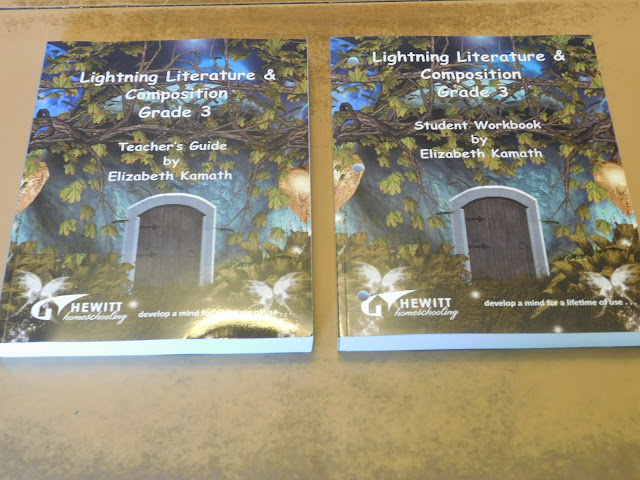





















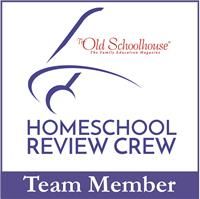
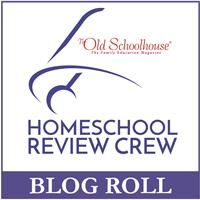









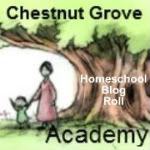

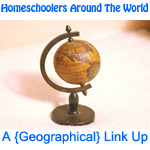


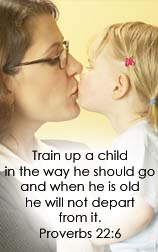



![[PREMIO2009.png]](https://blogger.googleusercontent.com/img/b/R29vZ2xl/AVvXsEjXD_Gx-wZ9EM5hXKrEYLksEBkYfRQtmb8VDVTDG_yyLggQoFIstZsh4zszdG20KqErZicRzEhiNYLty7j3IMXJYsABqkXjr8pp-ncj71xCbpxlXGbGpZq2fTuDQqq1RMKV4DPcDBnBViA/s1600/PREMIO2009.png)
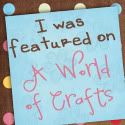



No comments:
Post a Comment
Thank you for visiting my blog today. I love to read your comments, so please leave me one if you have the time.
Blessings